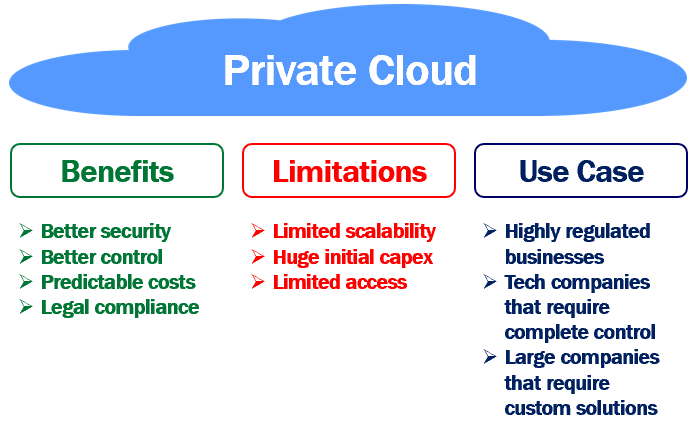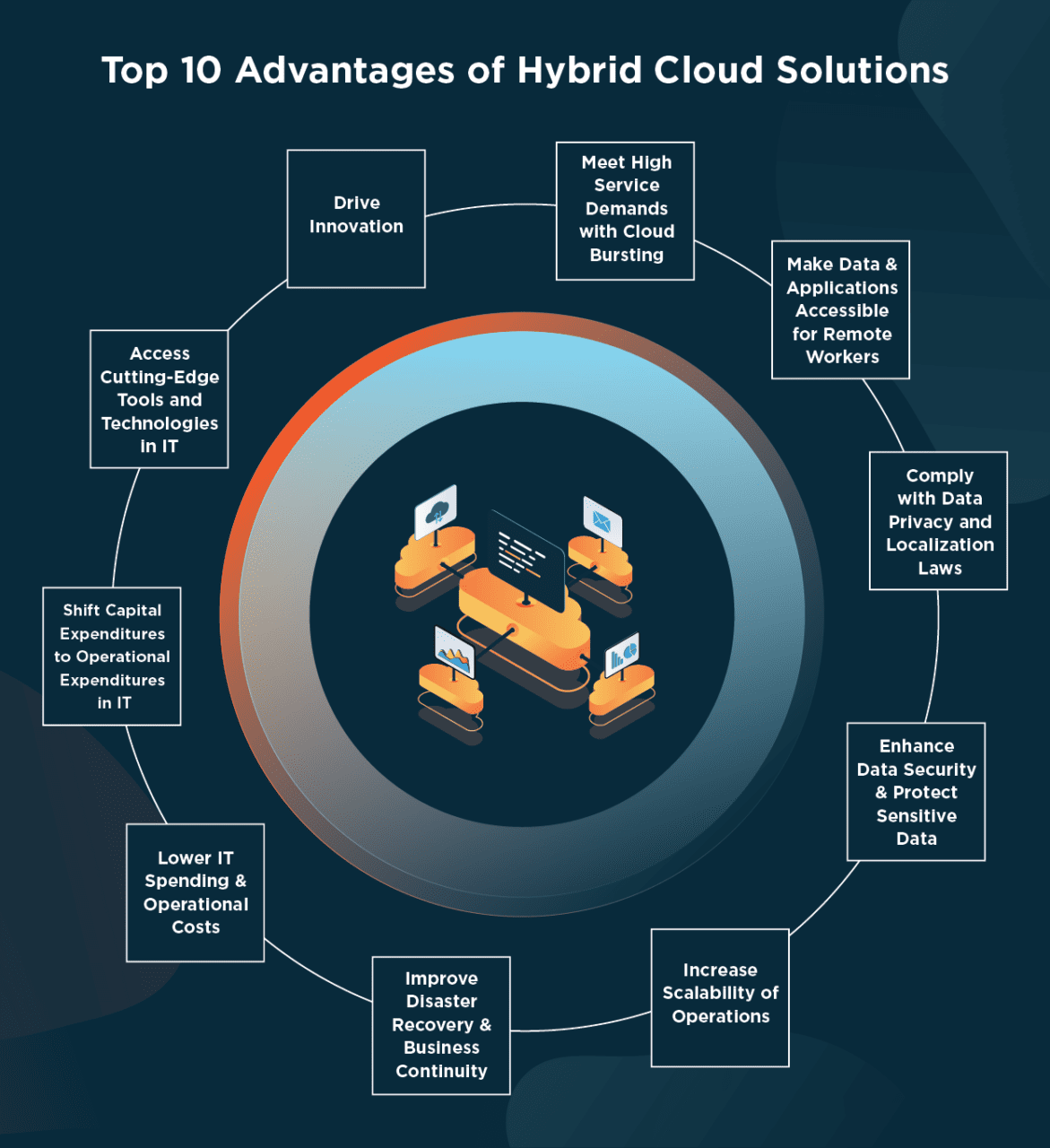Benefits and Drawbacks of Hybrid Cloud Solutions

Introduction
Hybrid cloud solutions have gained significant popularity in recent years as organizations strive to optimize their IT infrastructure and leverage the benefits of both public and private clouds. This blog post explores the advantages and drawbacks of adopting a hybrid cloud approach, providing insights into why it has become a preferred choice for many businesses.
Benefits of Hybrid Cloud Solutions
1. Flexibility and Scalability
One of the key benefits of hybrid cloud solutions is the flexibility and scalability they offer. Organizations can leverage the public cloud for handling peak workloads and seasonal demands, while keeping sensitive data and critical applications on-premises or in a private cloud. This allows businesses to scale their resources up or down as needed, ensuring optimal performance and cost-efficiency.
2. Enhanced Security
Hybrid cloud solutions provide enhanced security by allowing organizations to keep their most sensitive data and critical applications on-premises or in a private cloud. This ensures that sensitive information is not exposed to potential security risks associated with the public cloud. By maintaining control over their data, businesses can implement stringent security measures and compliance protocols to protect their valuable assets.
3. Cost Efficiency

Hybrid cloud solutions offer cost efficiency by allowing organizations to optimize their IT infrastructure. By leveraging the public cloud for non-sensitive workloads, businesses can reduce their capital expenditure on hardware and maintenance costs. Additionally, the pay-as-you-go model of the public cloud enables organizations to only pay for the resources they use, resulting in significant cost savings.
4. Disaster Recovery and Business Continuity
Hybrid cloud solutions provide robust disaster recovery and business continuity capabilities. By replicating critical data and applications across multiple locations, businesses can ensure that their operations remain uninterrupted even in the event of a disaster. The combination of on-premises infrastructure and the public cloud allows for quick data recovery and minimal downtime, minimizing the impact on business operations.
5. Improved Performance
Hybrid cloud solutions enable organizations to achieve improved performance by leveraging the strengths of both public and private clouds. Businesses can utilize the public cloud for handling resource-intensive tasks, while keeping latency-sensitive applications. “Benefits and Drawbacks of Hybrid Cloud Solutions
Summary
Hybrid cloud solutions offer a combination of public and private cloud environments, allowing organizations to take advantage of the unique benefits each model offers. The flexibility and scalability of public clouds, coupled with the security and control of private clouds, make hybrid cloud solutions an attractive option for businesses of all sizes.
One of the key benefits of hybrid cloud solutions is the ability to scale resources up or down based on demand. Organizations can leverage the elasticity of public clouds during peak periods, ensuring optimal performance and cost-efficiency. At the same time, sensitive data and critical applications can be kept within the secure confines of a private cloud, mitigating potential risks associated with public cloud usage.
Another advantage of hybrid cloud solutions is the ability to achieve cost savings. By utilizing public clouds for non-sensitive workloads, organizations can reduce infrastructure costs and only pay for the resources they consume. This flexibility allows businesses to optimize their IT spending and allocate resources more efficiently.
However, hybrid cloud solutions also come with their drawbacks. Managing and integrating multiple cloud environments can be complex and require specialized expertise. Organizations need to ensure seamless connectivity and data synchronization between public and private clouds, which can be challenging without proper planning and implementation.
Additionally, security concerns may arise when data is distributed across different cloud environments. Organizations must implement robust security measures to protect sensitive information and ensure compliance with industry regulations. Regular monitoring and auditing of the hybrid cloud infrastructure are essential to identify and address any vulnerabilities.
In conclusion, hybrid cloud solutions offer numerous benefits, including scalability, cost savings, and increased flexibility. However, organizations must carefully consider the p browse around this website otential drawbacks and invest in proper planning, management, and security measures to fully leverage the advantages of a hybrid cloud approach.
- Q: What are the benefits of hybrid cloud solutions?
- A: Hybrid cloud solutions offer increased flexibility, allowing organizations to leverage both public and private cloud environments. They provide scalability, cost-effectiveness, and the ability to customize infrastructure based on specific needs. Hybrid cloud solutions also offer improved security and data control, as sensitive information can be stored on private servers while taking advantage of the public cloud for less critical data.
- Q: What are the drawbacks of hybrid cloud solutions?
- A: Hybrid cloud solutions can be complex to manage and require expertise in both public and private cloud environments. Integration between different cloud platforms may pose challenges, leading to potential compatibility issues. Additionally, organizations may face increased costs due to the need for maintaining both private and public cloud infrastructures.

Hello, I’m Brayden Denman, a passionate and experienced Mobile App Developer specializing in Cloud Computing, Software Development, Mobile App Integration, and AI & Machine Learning. With a strong background in these fields, I strive to create innovative and user-friendly solutions that meet the ever-evolving needs of businesses and individuals.
Introduction Hybrid cloud solutions have gained significant popularity in recent years as organizations strive to optimize their IT infrastructure and leverage the benefits of both public and private clouds. This blog post explores the advantages and drawbacks of adopting a hybrid cloud approach, providing insights into why it has become a preferred choice for many…

Hello, I’m Brayden Denman, a passionate and experienced Mobile App Developer specializing in Cloud Computing, Software Development, Mobile App Integration, and AI & Machine Learning. With a strong background in these fields, I strive to create innovative and user-friendly solutions that meet the ever-evolving needs of businesses and individuals. Read More.
Recent Posts
- Challenges in Cross-Platform Digital Asset Search and Retrieval
- The Role of AI in Enhancing Digital Asset Retrieval
- Implementing Automation in Digital Asset Recovery Processes
- Digital Asset Retrieval: Addressing Security and Privacy Concerns
- Optimizing Metadata for Quicker Digital Asset Discovery
- Overcoming Barriers in Searching and Accessing Digital Assets
- Best Practices for Efficient Digital Asset Retrieval
- Harnessing the Power of Deep Learning: A Beginner’s Guide
- Scalability Issues in Large-Scale Machine Learning Projects
- Navigating the Ethical Challenges of AI Implementations
